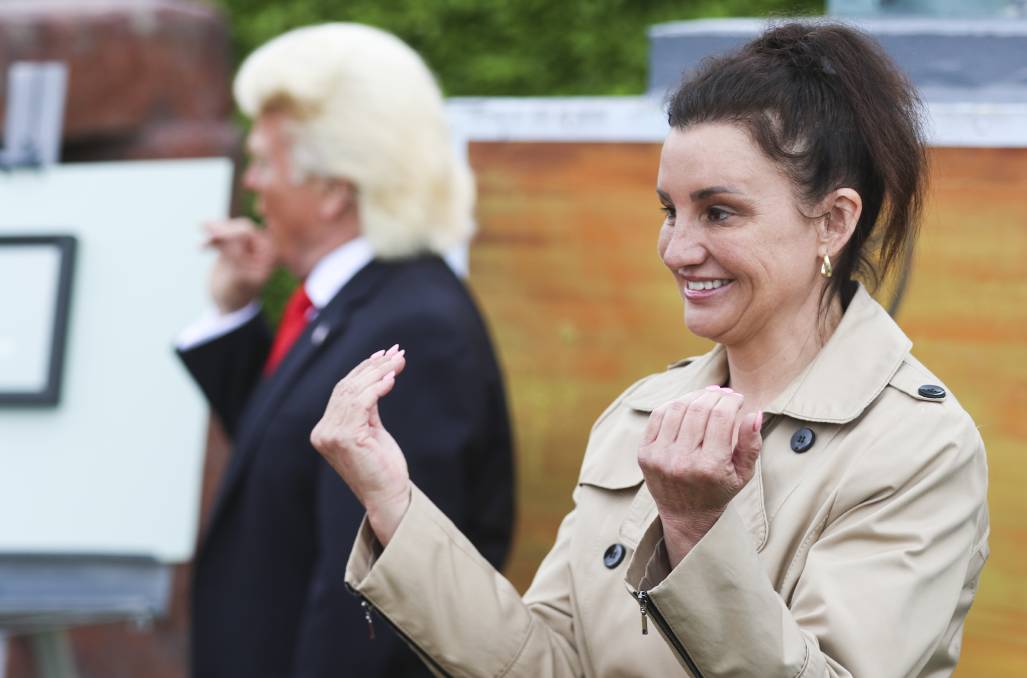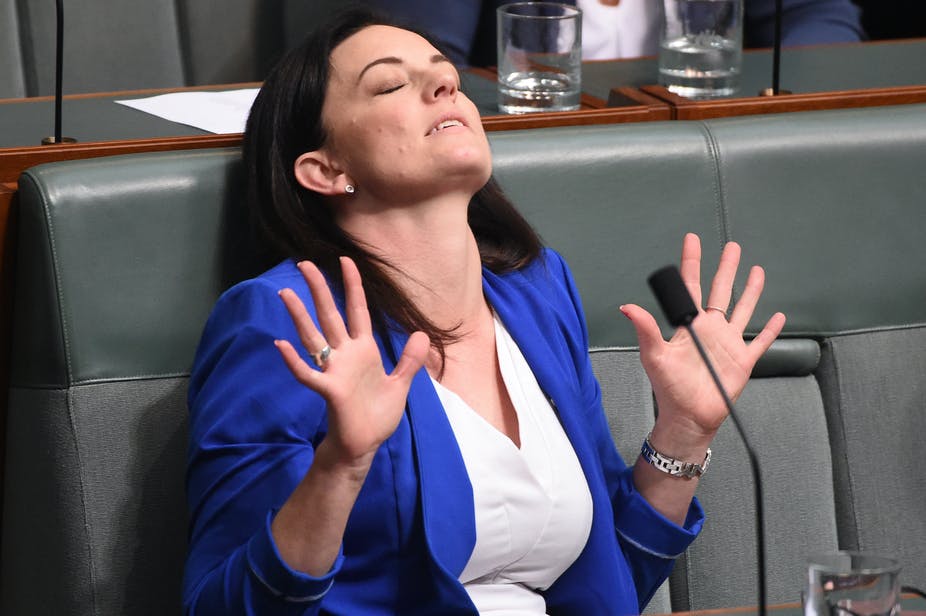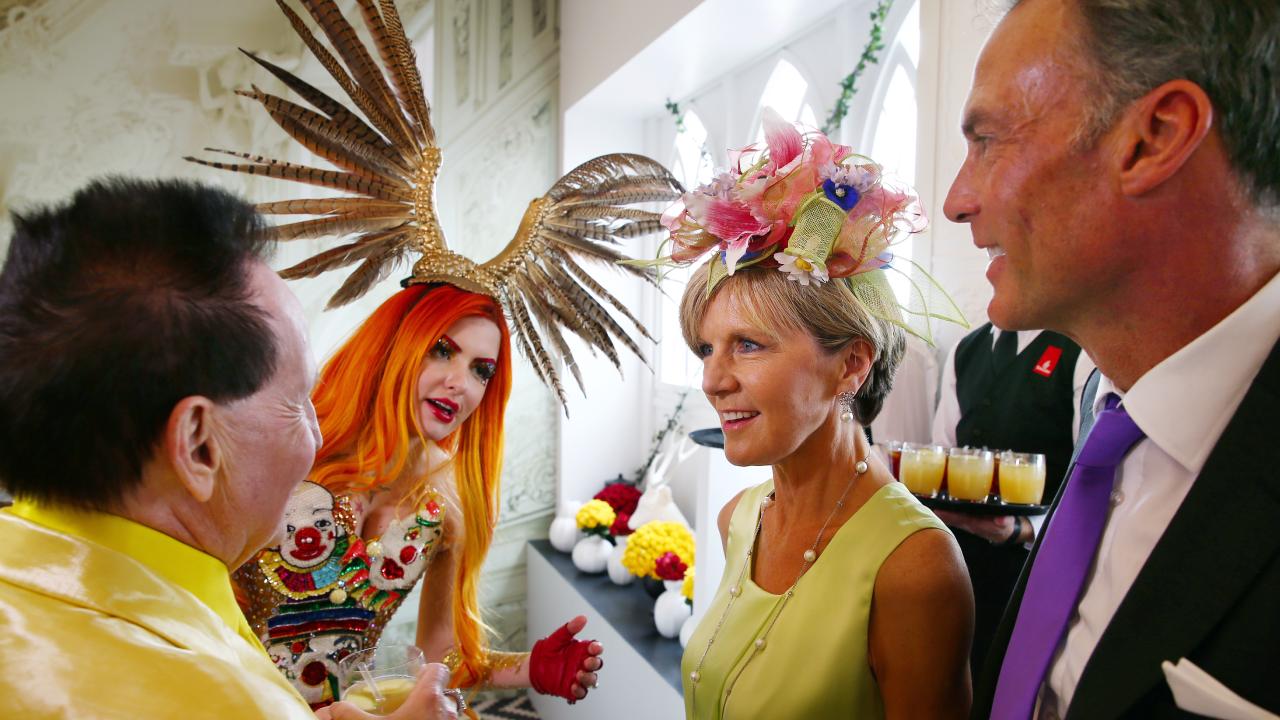Male and female MPs are put under very different levels of scrutiny when it comes to their private lives. Not only have male politicians been happy to use their female colleagues private lives for political gain, but the media has been happy to report on these speculative, unsubstantiated claims. James Mortensen writes.
With the airing of the ABC’s recent Four Corners report, the nation has finally been given the opportunity to pierce the ‘Canberra bubble’.
That women disproportionately suffer from the sordid secrecy of Canberra politics is an indisputable fact, and one that the Australian community is far too lax in correcting. In this regard, the Four Corners report is to be commended.
However, it is important not to fall into the trap of simply using the bubble as an excuse for bad behaviour by a Member of Parliament (MP). Without critically engaging with how the Canberra bubble works – or by failing to examine when it does not work – Australia runs the risk of perpetuating the systemic imbalances that taint its political community.
While the bubble might have protected male ministers for years, the alleged impropriety of other (female) politicians has not enjoyed the same level of discretion.
Because while the bubble might have protected male ministers for years, the alleged impropriety of other (female) politicians has not enjoyed the same level of discretion. Allegations that Tasmanian Senator Jacqui Lambie spoke about her sex life in the office were immediately reported, and regardless of the degree of truth in the claims against Lambie, the hypocrisy is startling. Evidently, women are not the only ones to speak of sex within Parliament House.

Jacqui Lambie’s off-the-record comments about her sex life immediately made the news.
Similarly, the ‘what happens in Canberra stays in Canberra’ mantra was absent in the treatment of Greens Senator Sarah Hanson-Young in her dispute with former Senator for the Liberal Democratic Party David Leyonhjelm.
The Canberra bubble has also proven ineffective at crucial moments for members of the major parties as well. Allegations against ex-Labor MP Emma Hussar were widely published despite being quickly found to be baseless.
These allegations ended Hussar’s political career, an outcome helped by the fact that the same man who told Four Corners that private lives could be used to compromise politicians tried to use just such allegations to compromise his political opponents in the past.
Of course, it might be said that Lambie and Hussar were subject to legal complaint, whereas the male MPs were not – there’s no special attention given to these women, but rather responsible reporting on legal proceedings in the ‘public interest’.
However, just as many have questioned the consensual nature of relationships between staffers and their ministers because of the huge power disparity, so too should we question the willingness of witnesses to make statements, the willingness of courts to prosecute, and the willingness of the media to report on the basis of power.

Accusations against Emma Husar were reported although later found to be baseless.
For one, witnesses who don’t expect convictions are reluctant to come forward. Journalists who are fed stories by the party machine are arguably unlikely to embarrass the same people who feed them information.
Besides, it only takes a look to examples of reporting of rumours not subject to legal proceedings to undermine this line of thought. Hanson-Young’s experience stands as a prime example, but it is simply the most brazen example in a well-established tradition.
Looking further to the past, examples are not hard to find, whether they be media stories about former Labor Prime Minister Julia Gillard’s relationship with her old boyfriend, or questioning the finer details of former foreign minister Julie Bishop’s relationship with her partner.
The ease with which sexual scandal can engulf female politicians does more to highlight disparities of power than it does to paint the picture of a Canberra bubble.
Not only have male politicians been happy to use their female colleagues private lives for political gain, but the media has been happy to report on these speculative, unsubstantiated claims.
The ease with which sexual scandal can engulf female politicians does more to highlight disparities of power than it does to paint the picture of a Canberra bubble that protects the private lives of its inhabitants. The three years that passed before the behaviour of male MPs shown in the Four Corners report was called out stands in stark contrast to the treatment of some of their female colleagues.

Julie Bishop’s relationship with partner David Panton has been put under intense media scrutiny.
That Canberra is historically a ‘boys club’ is indisputable and deserving of incisive scrutiny. However, perpetuating a simplistic idea of a Canberra bubble also runs the risk of obfuscating the issues of power and scandal that have served established interests.
To the degree such a bubble exists, it must also be acknowledged that its protection is selective. It is no accident that the bubble’s protection wears thin the further the subject strays from the men at the helm of the major parties.
Still, the bubble is not simply a matter of ignorant chauvinism, nor is it a blanket rule or unspoken boundary. Instead, it is a mechanism of power. It serves those in positions of influence and preys on a public willingness to scandalise some individuals while ignoring others.
James Mortensen is undertaking his doctoral studies at the National Security College at ANU. He has a bachelor of theology (Hons) from the University of Newcastle.




